Refine search
Actions for selected content:
23990 results in Ancient history
Chronological table
-
- Book:
- Theodosius II
- Published online:
- 05 September 2013
- Print publication:
- 08 August 2013, pp xiii-xiv
-
- Chapter
- Export citation
Part IV - Pius princeps
-
- Book:
- Theodosius II
- Published online:
- 05 September 2013
- Print publication:
- 08 August 2013, pp 219-284
-
- Chapter
- Export citation
Abbreviations
-
- Book:
- Theodosius II
- Published online:
- 05 September 2013
- Print publication:
- 08 August 2013, pp xv-xvi
-
- Chapter
- Export citation
Contents
-
- Book:
- Theodosius II
- Published online:
- 05 September 2013
- Print publication:
- 08 August 2013, pp v-vi
-
- Chapter
- Export citation
Chapter 1 - Rethinking Theodosius
- from Part I - Introduction
-
-
- Book:
- Theodosius II
- Published online:
- 05 September 2013
- Print publication:
- 08 August 2013, pp 3-64
-
- Chapter
- Export citation
Part II - Arcana Imperii
-
- Book:
- Theodosius II
- Published online:
- 05 September 2013
- Print publication:
- 08 August 2013, pp 65-152
-
- Chapter
- Export citation
Index
-
- Book:
- Theodosius II
- Published online:
- 05 September 2013
- Print publication:
- 08 August 2013, pp 315-324
-
- Chapter
- Export citation
Part III - Past and present
-
- Book:
- Theodosius II
- Published online:
- 05 September 2013
- Print publication:
- 08 August 2013, pp 153-218
-
- Chapter
- Export citation
Series page
-
- Book:
- Theodosius II
- Published online:
- 05 September 2013
- Print publication:
- 08 August 2013, pp ii-ii
-
- Chapter
- Export citation
Chapter 5 - Olympiodorus of Thebes and eastern triumphalism
- from Part II - Arcana Imperii
-
-
- Book:
- Theodosius II
- Published online:
- 05 September 2013
- Print publication:
- 08 August 2013, pp 130-152
-
- Chapter
- Export citation
Chapter 8 - Writing in Greek:
- from Part III - Past and present
-
-
- Book:
- Theodosius II
- Published online:
- 05 September 2013
- Print publication:
- 08 August 2013, pp 195-218
-
- Chapter
- Export citation
Chapter 10 - The imperial subject:
- from Part IV - Pius princeps
-
-
- Book:
- Theodosius II
- Published online:
- 05 September 2013
- Print publication:
- 08 August 2013, pp 244-268
-
- Chapter
- Export citation
Frequently cited texts
-
- Book:
- Theodosius II
- Published online:
- 05 September 2013
- Print publication:
- 08 August 2013, pp x-xii
-
- Chapter
- Export citation
Part I - Introduction
-
- Book:
- Theodosius II
- Published online:
- 05 September 2013
- Print publication:
- 08 August 2013, pp 1-64
-
- Chapter
- Export citation
Theodosius II - Half title page
-
- Book:
- Theodosius II
- Published online:
- 05 September 2013
- Print publication:
- 08 August 2013, pp i-i
-
- Chapter
- Export citation
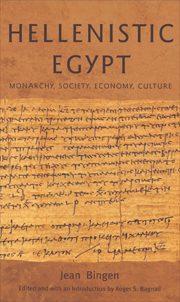
Hellenistic Egypt
- Monarchy, Society, Economy, Culture
-
- Published by:
- Edinburgh University Press
- Published online:
- 05 August 2013
- Print publication:
- 06 March 2007
-
- Book
- Export citation
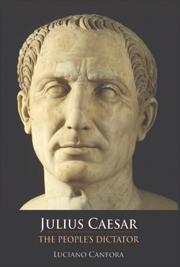
Julius Caesar
- The People's Dictator
-
- Published by:
- Edinburgh University Press
- Published online:
- 05 August 2013
- Print publication:
- 05 February 2007
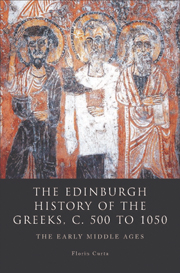
The Edinburgh History of the Greeks, c. 500 to 1050
- The Early Middle Ages
-
- Published by:
- Edinburgh University Press
- Published online:
- 05 August 2013
- Print publication:
- 30 January 2011
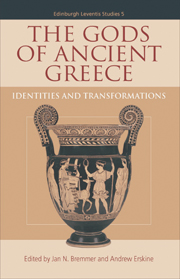
The Gods of Ancient Greece
- Identities and Transformations
-
- Published by:
- Edinburgh University Press
- Published online:
- 05 August 2013
- Print publication:
- 30 July 2010
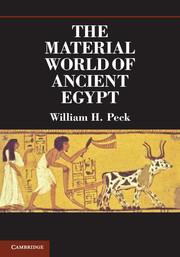
The Material World of Ancient Egypt
-
- Published online:
- 05 August 2013
- Print publication:
- 12 August 2013
